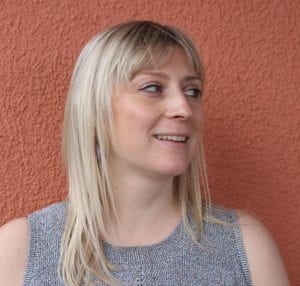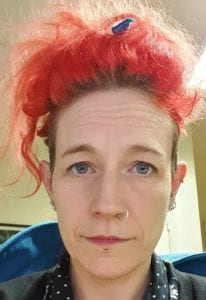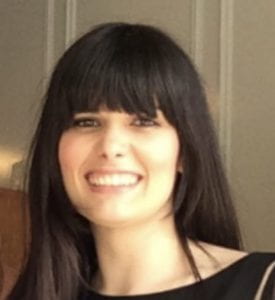 Context – Covid-19/other
Context – Covid-19/other
In early March 2020 the global Covid-19 Pandemic reached Britain which saw WECIL entering emergency response mode immediately. Within the space of a week WECIL’s whole delivery model needed to be overhauled and adapted as well as mobilising our entire staff team to work at home in the space of two weeks.
This meant that we cancelled all home visits and face to face appointments, groups for young disabled people, office walk ins, volunteering activity and group courses. This affected our Independent Living Payments team (Direct Payments and Payroll), benefits advice, advocacy, employability services, short breaks for families with disabled children, inclusive youth groups, participation groups and befriending services). Sadly, the support we provide to Businesses on a commercial basis (which is a crucial income generating part of the organisation) pretty much stopped overnight. This includes Disability Equality training, access audits and supporting organisations to become Disability Confident.
What that means for you/ Challenges that this has presented
Positively we managed to get staff working from home pretty seamlessly as home working was already part of our working culture and the technology was in place as part of our risk mitigation. To date, no existing grant or statutory contract funding has been significantly reduced and staff have worked hard alongside members and funders to find innovative solutions to support our community such as running Zoom courses, Facebook live youth sessions and increasing telephone support.
I had to step into another department (Independent Living Payments Team) to meet rising demand by reallocating my own workforce and finding solutions from a Community Development perspective to meet the need.
As a Head of all Community based services this did mean that personally my attention was heavily focussed on adapting services and working hard to retain staff and funds. As a fellow, this has meant that face to face interaction with our community has been much more limited and some of the plans I had for engagement have had to be put on hold. This is especially relevant to the creation of the Disabled People’s Co-Production Toolkit due to the challenge of not physically being able to engage with members.
The disabled community will be and are disproportionately affected by C-19 with many people’s requirements to shield continuing much longer than the ease of lockdown. The narrative within the media has portrayed ‘older and vulnerable people’ for whom C-19 is more likely to be fatal, as almost disposable causing great anxiety for the disabled community.
The impact of increased long term social isolation and the inability to access supportive therapies, medical appointments, planned surgeries and social interactions will have a knock on effect on physical and mental wellbeing for disabled people which in turn will create an increased demand for care and support.
Access and inclusion will always be an issue whilst we work in this way as many will not be able to access online/ telephone interaction or have the means to do so, however, this has also opened up opportunities for people to engage with us who may have previously struggled to do so.
Opportunities this offers
As WECIL’s fellowship proposal focussed heavily on the ‘development of new systems which are truly person-centred and target supporting disabled people towards independence and control’ and the One City Plan aim to work towards ‘integrated health and social care’ which ‘seamlessly meet(s) the ever-changing needs of our communities’, C19 has given us an opportunity to review our internal systems as well as working closely with BCC and other stakeholders to effectively support emergency response systems. From involvement in meetings with other third sector organisations (both locality based and representing communities of interest), this seems to be the consensus across the VCSE sector.
Early on in lockdown, we worked closely with local authorities Bristol City Council, South Gloucestershire and B&NES to risk assess over 800 disabled people who receive a direct payment. The purpose of the risk assessment was to understand how ‘vulnerable’ their packages of care were. For example, if a disabled person relied on one PA (Personal Assistant) for significant care needs/ hours and this PA became unwell or needed to self-isolate this made their care very vulnerable. If a disabled person had a bank of four PA’s who supported them with general daily duties, then their care was less vulnerable as they could rotate PA’s or reallocate some of their care needs. Other considerations included the health conditions of the disabled person and if they were required to self-isolate (a high proportion of our community), if they needed help with medication, eating, washing, moving etc. and would not be able to maintain their independence without this support. Our intervention and support with this activity has resulted in wide recognition and praise of WECIL and WECIL staff resulting in more cohesive working relationships and an understanding of our trusting relationships with disabled citizens. It also uncovered a high volume of people who felt anxious and isolated due to the global pandemic.
Make it Local
As part of ongoing work and discussions with BCC we have now had confirmation that WECIL will receive £55k from Power to Change for our role in the ‘Make it Local’ project
This will be the cross sector collaboration described in our City Fellows proposal bringing together
- WECIL
- A locality-based anchor organisation (BS3)
- BCC Adult Social Care Commissioning
- Locality UK (national community anchor infrastructure org)
- Other representative local anchor and key local (strategic) VSC organisations (e.g. in BS3, Windmill Hill City Farm)
WECIL’s role will be to work with local disabled people managing their own care at home or wishing to move to doing so to establish how they would choose to use their personal budgets to meet their care needs if the system were truly person centred.
As a partnership we will then
- Describe (at high level) the resources and assets in the area, and their capability to meet the aims identified by disabled people managing their own care
- Present (and debate) the challenges in the area from a general community and from a social care perspective (including local social care “market”).
- Scope the feasibility of developing a local, community-owned enterprise which can meet the care needs gap identified
Create My Support Plan
We have also received £18k of funding from BCC to update WECIL’s support planning tool (Create My Support Plan- CMSP) which has been underutilised since its inception. The tool gives a disabled person the ability to carry out a self-directed care assessment which can be shared with whoever the individual wants to understand their care needs. This includes PAs, family, Social Workers and Advocates. Aside from influencing a culture of ‘person centred care planning’ in general, this is especially relevant during C-19 when disabled people are needing to draft in temporary care and support from people who do not know and understand their needs.
Additionally, people need to find alternative means of meeting their care needs as previous means may no longer be available.
The tool will link in with Well Aware so that the individual will be able to also direct themselves (or with the support of a navigator, family member or PA) to other areas of support available to them within their area for example, mental health services.
Care Act ‘Easement’s and the Coronavirus Act
On the 25th March 2020 the government passed the Coronavirus Act. For disabled people this means the rights disabled people are entitled to through the Care Act, including Local Authorities having the duty to assess people who might require care and support and make the assessment centred around what matters to the individual, were impacted. The Coronavirus Act means that Local Authorities have the option to suspend some of these duties if they can say that this is reasonable to help manage the burden of C19 on health and care systems. These are rights that disabled people (including the founders of WECIL) fought hard to win to give them more choice and control in their lives.
This was deeply worrying for WECIL and alongside our commitment within the fellowship to ‘work with disabled citizens, commissioners (e.g. Bristol City Council Direct Payments Team and BNSSGCCG Continuing Health Care)’ ‘to identify system conditions which: Contravene the Care Act’ in response we have managed to keep an open and ongoing dialogue with the Head of Bristol Adult Social Care regarding our concerns and the need to meaningfully include disabled people and users of care in decision making around easements. We also worked alongside Irwin Mitchel Solicitors who provided pro bono support to us to compose an easier read statement and information for our community to enable them to feel equipped and supported to challenge any decisions which could be in detriment to their Care.
What is more/less important now
It is more important than ever due to the context given above, that ‘development of new systems which are truly person-centred and target supporting disabled people towards independence and control’ are developed and reviewed.
The C-19 crisis has given wider society the chance to look at how life was and how it could be. Even simple measures such as employers making adjustments for staff to carry out home and flexible working if continued, opens up opportunities for wider access and inclusion for disabled people within the employment market. Arts and culture has become available in new platforms such as online (National Theatre Live Streaming) or through the use of Telepresence Robots meaning that disabled people who even before C-19 couldn’t access these spaces have now been able to.
There is discussion of pedestrianizing large parts of Bristol which is an opportunity to look at the wider access issues many disabled people face when navigating the city and disabled peoples’ voices must be present in these discussions.
In terms of health and care systems, the strain on Local Authorities and NHS from C-19 will undoubtedly create a long-term impact on resource and a backlog in assessing and providing commissioned care. WECIL believes that by placing the citizen at the centre of their care planning and decision-making focussing on ‘what matters’, not only does this make care more effective and personalised but this is cost saving in the longer term. Through the use of tools such as CMSP the citizen, with the support of WECIL completes the initial care assessment/ review process drawing in Social Care decisions later on and subsequently saving on resource for social care teams. Also, encouraging asset-based ways of assessing with the linking to Well Aware, the disabled person is also able to identify what other support is available to them potentially reducing the need for more funded care hours.
Through delivering our C-19 befriending and social services, we are able to engage with disabled people who are socially isolated and identify some of the challenges people are facing offering support, signposting or safeguarding to contribute towards the prevention of a decline in mental and physical wellbeing.
What are your priorities moving forward?
Whilst face to face engagement has not been possible as I had envisaged in my role as City Fellow, we have now opened up new platforms for disabled people to engage with us. For some people, using an online platform is more accessible for example for those who struggle to get accessible transport or find group environments anxiety inducing.
I would like to harness these new opportunities to engage with people to attract those whose voices have not previously been heard into these really important conversations about the future. At a strategic level I feel that WECIL have made excellent progress with our City Fellow’s proposal however on a personal level I want to be more engaged with our members and actively promote the inclusion of their voices and opinions in city wide decision making.
My immediate priorities include:
- Make it Local
- The roll out and promotion of CMSP
- Inclusive employment practices- engaging employers with WECIL’s WorkASSURED programme for disabled staff
- The redesign of Care Management Advocacy Services





 Before setting up the City Fellows programme, Helen Manchester and I were working on a
Before setting up the City Fellows programme, Helen Manchester and I were working on a